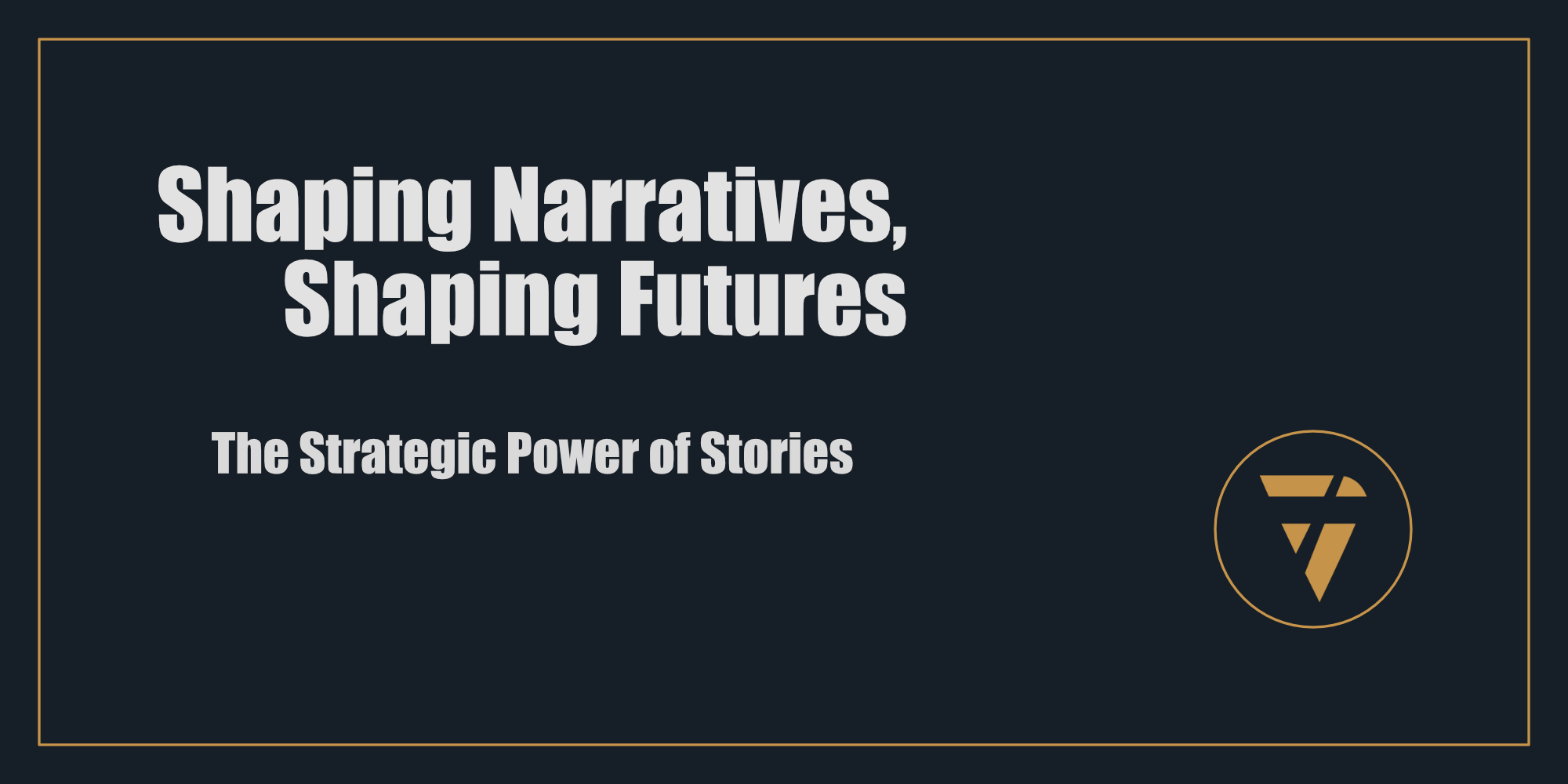Shaping Narratives, Shaping Futures
The Strategic Power of Stories

What if the stories we tell, are the most powerful tools we have, for equity and change?
Honoring MLK’s Legacy by Transforming Narratives
When Dr. Martin Luther King Jr. envisioned the “Beloved Community,” he didn’t just imagine an idealized future; he offered us a strategic framework for transformation. His philosophy wasn’t rooted in abstract hope, but in the conviction that connection, justice, and equity are foundational to progress. Today, we honour his legacy by asking a vital question: how can we use the narratives around us to create the future we want to see?
Why Narratives Matter
Stories shape more than just culture, they shape systems. They determine who gets heard, who gets opportunity, and whose lives are valued. Narratives have the power to reinforce inequity, or dismantle it.
Take the deeply ingrained myth of meritocracy: the idea that hard work alone determines success. This story, though empowering for some, often ignores the structural barriers that make success inaccessible to many. Research from economist Darrick Hamilton shows how health outcomes and wealth disparities persist across racial lines, even as education and income rise. This highlights a harsh truth: the stories we tell about individual effort often obscure systemic realities.
But there’s hope. Narratives can be rewritten.
The Narrative of Connection
In shifting harmful narratives, the goal isn’t just critique, it’s replacement. What story will take its place?
Dr. King’s Beloved Community provides an answer. It’s a story of connection over competition, of shared success over individual gain. In business, caregiving, and even popular culture, we see glimpses of this narrative gaining traction.
Take the work of Dwayne Curry from the Robert Wood Johnson Foundation, who reframes caregiving as a courageous act of connection. Or look to Indigenous-led storytelling in Reservation Dogs, a TV series that brings authenticity and representation to the forefront of mainstream media. These narratives reshape public consciousness and show how authentic stories can influence policies, cultural norms, and equity.
What Businesses Can Learn from These Narratives
For leaders, the ability to shape and amplify narratives is a competitive advantage. It’s not just about branding or PR, it’s about aligning your mission with stories that resonate deeply with your audience and inspire action.
Here are three strategies businesses can adopt:
- Build Partnerships That Amplify Equity
Partnerships are about more than shared resources, they’re about shared values. Identify collaborators who expand your reach into underserved communities and align with your equity goals. Use frameworks like the Profitable Partnerships Methodology to ensure every collaboration is a win-win. - Tell Authentic Stories
Consumers crave authenticity. Highlight the human impact of your work, whether through employee stories, customer testimonials, or community case studies. Use platforms like Substack to share long-form narratives that go beyond surface-level wins. - Invest in Representation
Equity in storytelling starts with who’s in the room. Empower underrepresented voices within your organization to shape internal and external narratives. Diverse perspectives are not just good ethics, they’re good business.
Your Call to Action
Every business decision is an opportunity to rewrite the narrative. Will your company be part of a story that reinforces inequity, or one that reimagines what’s possible?
Start small. Ask yourself:
- What narratives does your business currently support, intentionally or not?
- How can you amplify stories of equity and connection in your work?
- Who are the storytellers in your organization, and how can you empower them?
Let’s transform the way we lead, collaborate, and build. Together, we can shape the stories that shape our future.
Join the Conversation
What stories are you telling in your business or community? Share your thoughts, or connect directly to explore how we can craft narratives that create lasting impact.
Subscribe for more insights on equity, strategy, and transformative leadership.
This Substack is reader-supported. To receive new posts and support my work, consider becoming a free or paid subscriber.
This is what I’m working on. Tell me what you think, I enjoy the conversation! Subscribe and follow the work in real time.
Thanks!
B
Narratives don’t just reflect reality; they shape it. Every story you tell is a decision about the future you want to create. Are you amplifying equity or reinforcing barriers? Choose wisely.
PS -





